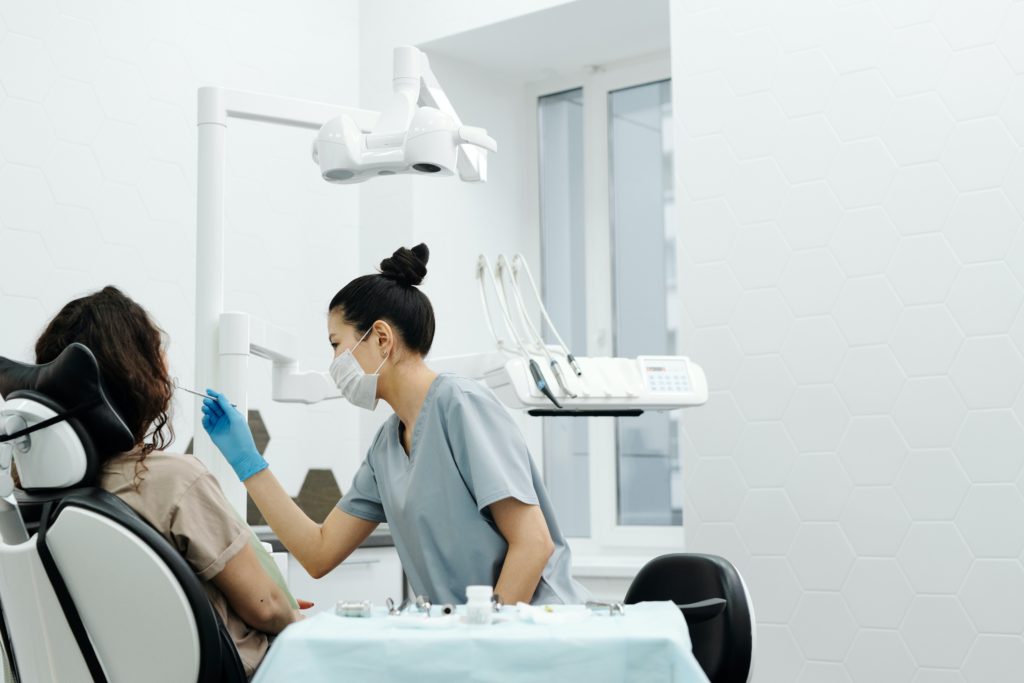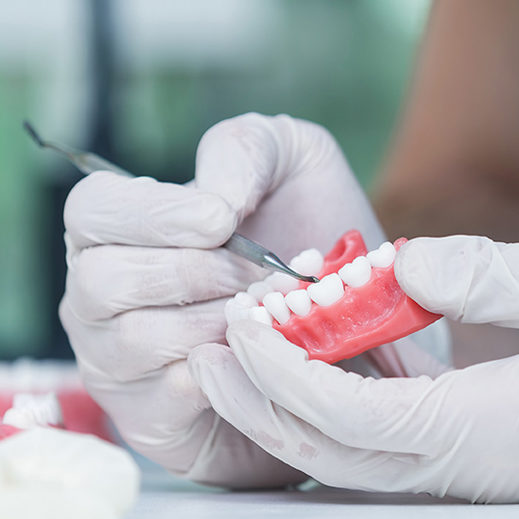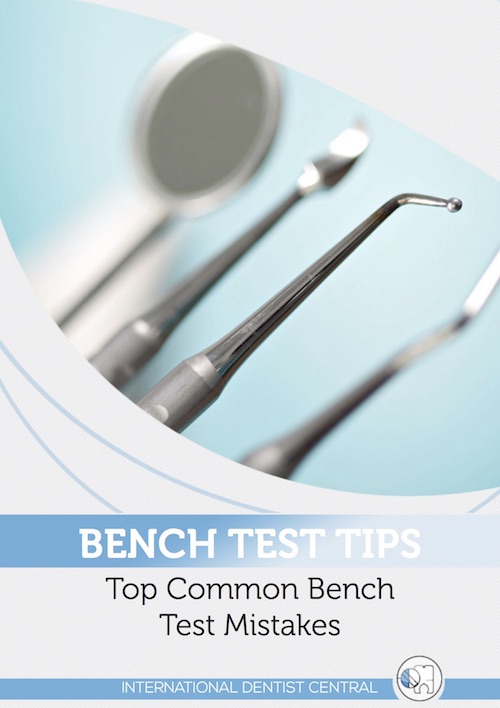I used to have very unsteady hands. Preps I did back then looked nothing like they do now. They used to be big, rough, irregular, I’d uncontrollably hit the adjacent tooth, and most importantly, I didn’t know why all this was happening. I thought that ideal preps as we see it in books were unrealistic, that nobody could possibly do preps like that.
I had never seen anyone actually do good preps, it was never demoed real-time in school. Everything was just taught with photos from textbooks. So how should I have known any different?
I went from horribly wobbly and unsteady hands to now having very precise and steady hands. Not only did I pass 5 bench tests, but I’ve helped hundreds of dentists from all over the world prepare for bench tests for the past 9 years. It’s pretty incredible if I think about it.
Watch the full video below to know more about my bench test story.
I graduated from a dental school that had hardly any hands-on work. Lab work time was minimal and while we were taught how to do class I and class II preps, we weren’t really graded with any seriousness. I’d say we had less than 10 typodont prep sessions. I hadn’t done a single crown prep on a real patient before finishing school. I had treated I think 2 class I cavities in school. I remember the lesions had to be class I, the school knew we were not ready for class II lesions.
Lectures were all done in classroom settings, and I had never seen someone do a good prep live. Assisting residents and faculty in their treatment was a huge part of our curriculum, but honestly, I couldn’t see what they were doing that clearly. Whether their work was good or bad, I had no way of knowing.
I was never taught how to properly hold a handpiece, how to give a solid finger rest. Those were just part of a textbook but nobody actually showed me and helped me learn these foundations properly. And doing preps without a solid foundation led me to do subpar preps if I could even call it that.
I applied for advanced standing programs for 2 cycles. During my first try, I was invited to 2 schools for an interview – one with, and one without a bench test. I was not expecting any calls and had not even seriously looked into what this whole bench test thing was about.
Related Articles:
I had no friends that went through this process, no information. I was just learning that it was competitive after I applied. In my mind, I was already a dentist and I was applying to go back to dental school, I mean, what could they possibly want from me? Being a dentist should be good enough, right?
When I was called to take a bench test, I panicked. I had 3 weeks and no materials. I had no idea how to even set up a home lab, and no other place to practice. Deep down, I knew my hand skills were one big mess. I knew this much because I had always struggled with lab work. Wax carving, wax-up, aligning teeth for dentures, wire bending, nothing came easy to me. Lucky for me, my seat at the lab was next to a classmate with impeccable hand skills and got a lot of help all throughout dental school.
So all I could think of was, what was I supposed to do now? Would they actually not take me if I couldn’t do a good prep?
I saw online that I was supposed to buy a compressor and a turbine, but it looked so scary to me. I ended up buying a portable dental unit that I just had to plugin a handpiece to use, and it plugged in directly to the outlet. One unit instead of a separate compressor and turbine.
By the time everything I ordered arrived, I had about a week left.
So I just practiced, by myself. It had been a while since I had prepped anything and it didn’t go so well. I was scared and depressed because I didn’t know HOW to improve. I saw my mistakes, at least some of them because they were really big and obvious ones, but I kept making them, over and over and over again.
Some preps would turn out a little better, but then it would be bad again. Overall the improvement was marginal at best. I felt totally lost. Sometimes I thought – well okay, maybe my hands aren’t amazing, but if this is THIS hard, it has to be hard for everyone, right? Maybe this is what everyone’s work is like? Maybe I’ll pass it, maybe it will be okay.
And sometimes I thought – there’s no way I’ll pass. I practiced somewhat, but because I didn’t see real progress and I knew I wasn’t going to make big progress, I didn’t practice that hard.
And I did not pass the test.

Now year 2, I took everything more seriously. But anyway, for the bench test, I got to work soon after I was done applying. I knew I had a lot of work to do and was determined to make it work this time. I came to terms with the fact that the only way out was through, that I had to face it and overcome this challenge in front of me.
I know this can sound grandiose, but this really is how I thought of it at this time. Sure, I could get into maybe Boston university that didn’t have a bench test, but I didn’t want to limit myself so much. I knew many applicants were hoping to get into a school without a bench test, and my profile was not competitive. I couldn’t take that chance.
I had an unofficial mentor this time around. He was a dentist with many years of practice under his belt. He was also an Advanced standing program applicant, but when he saw me attempt to prep, he knew what my issue was right away.
My hands were not steady. I had no steady rest. My handpiece was all over the place. I could not possibly do precise preparations without working on this first. How could I get reliably good preps when I didn’t have complete control of my handpiece?
Related Articles:
- Why Programs Have Such Different Bench Tests
- What An International Dentist Can Expect On The Day Of The Bench Test
This was certainly not what I was thinking about when I was practicing. I was looking at wide irregular crown margins, wide isthmuses, bumpy cavosurface margins, and floors, and wanted to know how to fix those issues. He saw something entirely different.
I was a little resistant at first, but something clicked inside me, in my gut, I knew he was on to something even though I didn’t like what I heard. The issue was, I had no idea how to steady my hands.
Luckily though, I had started practicing early this time, before I had been called anywhere. I had the time to put into working on this.
He showed me how to properly hold the handpiece. Apparently, I wasn’t holding it the right way before. I didn’t know!
And he showed me how to place a finger rest. An engaged one. I thought I had a finger rest before, I certainly had my fourth finger sticking out from my right hand – isn’t that what a finger rest was?
Well now. It’s not. Mine looked kinda right, but it wasn’t engaged, it wasn’t acting as an actual rest. All of this took time to learn, and my fingers and neck, and shoulders, and my whole body ached as I was practicing. It got so bad I couldn’t turn my head right and left for several days. But I continued.

Then, I had it. My hands were steady. And even though I had to work on fine-tuning my technique and doing preps the way schools wanted it, now I could. Because now, I was able to do with my handpiece what I wanted. It no longer felt like the handpiece had a life of its own. That I couldn’t control anything. That I didn’t understand how and why nothing was working.
I still made mistakes, but I became conscious of them. I could correct them now. And correct them I did.
I passed all but 1 of the bench tests I went to in my second year. I had more interviews lined up that I didn’t go to. I could actually choose which program I wanted to attend! This was a position I didn’t see coming, I just wanted an acceptance from anywhere.
From 2013, I’ve been helping dentists like you pass the bench test too. I’ve been in your shoes and worked through the challenges, and helped hundreds of others do the same. And if you would let me, I would love to help you improve your hand skills as well. If you’re interested in working with me, click the link below about Bench Test Mastery, a course designed to help you ace the bench test, even if you’ve never done a crown prep before.
Related Articles:
- How Long Does It Take To Prepare For A Bench Test?
- Bench Test: Most Asked Exercises By Dental Schools
- Bench Test Prep Course for International Dentists







Leave A Comment